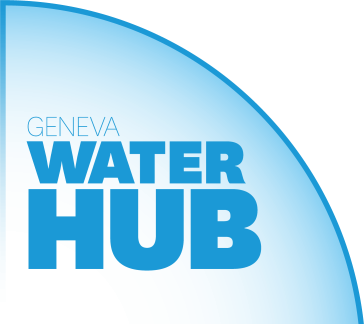
Stay tuned - The Geneva List of Principles on the Protection of Water Infrastructure
Noting the devastating consequence of the COVID-19 pandemic, the United Nations Secretary-General has appealed to all warring parties around the world to commit to “global ceasefire”. To contain, mitigate and defeat the pandemic, the United Nations General Assembly also adopted a resolution calling for international cooperation, among other things, to improve access to clean water and sanitation. As attacking water infrastructure is attacking an entire way of life, the centrality of water and water infrastructure to combat such pandemic could not be overstated. In particular, the World Health Organization recommended that the provision of water, sanitation, and health services (WASH) is essential to protecting human health during all infectious disease outbreaks, including the COVID-19 pandemic.
In its report “A Matter of Survival”, the Global High-Level Panel on Water and Peace underlined the adverse consequences of armed conflicts on water resources and infrastructures. In collaboration with other actors, the Geneva Water Hub developed the “Geneva List of Principles on the Protection of Water Infrastructure”. It is the first of its kind in systematizing and formulating the main rules applicable to the protection of water infrastructure during armed conflicts, as well as pre- and post-conflict situations in a single document. The Geneva List of Principles on the Protection of Water Infrastructure followed a holistic approach in integrating relevant rules and principles from different branches of international law, including international humanitarian law, human rights law, international environmental law and international water law. Thus, the Geneva List of Principles on the Protection of Water Infrastructure restates the binding rules of international law on both states and non-state actors as parties to a conflict. It addresses the protection of water resources and infrastructures, humanitarian personnel working therein, and also portrays links between water, health care, environment and post-conflict peacebuilding. It is meant to serve as a reference for parties to armed conflicts, international organizations and other practitioners.
La phase actuelle du projet vise à évaluer comment les principes identifiés sont opérationnalisés dans les cadres juridiques nationaux ; quels mécanismes sont en place pour surveiller l'application des règles ; et quels mécanismes de responsabilisation, le cas échéant, ont été utilisés pour traiter les violations de ces principes au niveau national. Depuis janvier 2020, le Geneva Water Hub a entamé des activités de suivi de la liste de principes de Genève sur la protection des infrastructures de l'eau, qui se concentrent sur la "promotion du respect et de la mise en œuvre du droit international relatif à l'eau pendant et après les conflits armés". Il s'agit d'étudier comment l'eau, les infrastructures hydrauliques et les infrastructures liées à l'eau, les dommages qu'elles subissent et leur protection sont pris en compte dans le processus de prise de décision pendant la conduite des hostilités. Et comment nous pourrions améliorer leur protection, notamment en facilitant la mise en œuvre de la liste de principes de Genève sur la protection des infrastructures hydrauliques. À cette fin, un examen approfondi sera effectué sur les cadres juridiques nationaux, y compris les législations, les réglementations, les manuels militaires, la jurisprudence nationale et, le cas échéant, les mesures prises par les groupes armés pour la protection des ressources en eau et des infrastructures hydrauliques.
(Photo credit: Catholic Agency for Overseas Development)

